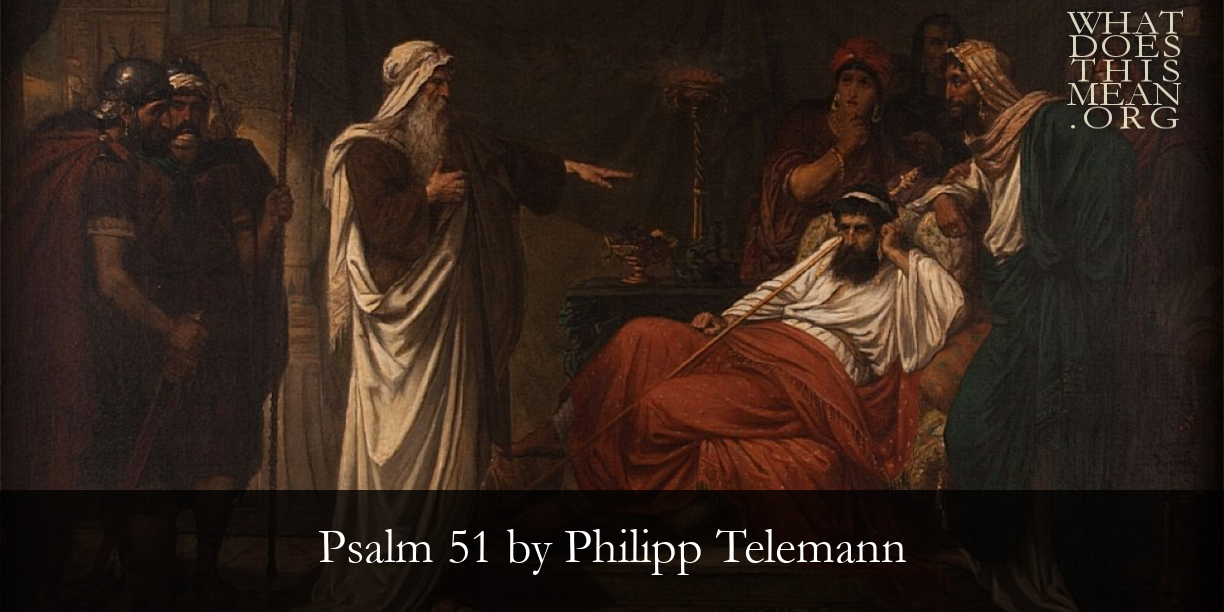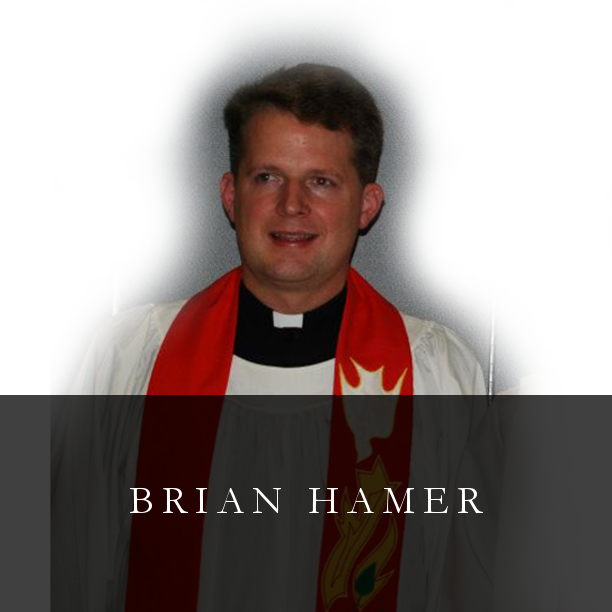Telemann is perhaps best known among Lutherans as the musician whom the Leipzig Town Council wanted to hire in 1722 to replace Johann Kuhnau, who died suddenly in that year. Telemann agreed to the position, but chose to remain in Hamburg after his employer raised his salary. Johann Graupner was also offered the post, but he could not obtain a dismissal from his position. In the spring of 1723, the Town Council effectively “settled” for J. S. Bach, noting in the minutes of their meeting that if Mr. Bach accepted the position, then Mr. Telemann might be forgiven for prolonging their efforts!
And what of Telemann? He served faithfully in Hamburg from 1721 until 1769, where he directed music in the city's five main churches. He is one of the most prolific composers in history and was considered by his contemporaries to be one of the leading German composers of his day. Telemann was compared favorably both to his friend J. S. Bach, who made him the godfather and namesake of his son Carl Philipp Emanuel, and to G. F. Handel, whom Telemann also knew personally.
Among his vast treasury of sacred works are over 1,000 cantatas. The following cantata on Psalm 51 (TWV 1:1241, not 1:1237 as noted in the video) sets verses 10–12 of Psalm 51 in German (along with two chorale texts) and displays many characteristics of the Baroque cantata: an opening chorus, a few solos, and a closing chorale. Also typical of the period is the relatively lean scoring, for soloists, strings, continuo, and choir. The transparent textures might remind you of Buxtehude’s sacred music. As always, I encourage you to use your best sound equipment, clear away all distractions, and follow the English translation provided below. Do you recognize the hymn in the final movement?
- Chorus [0:00–2:58] Create in me a clean heart, O God, and renew a right spirit within me.
- Solo [3:00–5:21] Cast me not away from Thy presence, and take not thy Holy Spirit from me.
- Chorus [5:21–6:22] Restore unto me the joy of Thy salvation, and uphold me with Thy free Spirit.
- Duet [6:22–8:30] Console us with thy spirit in all our crosses and sorrows, and at the last parting help us to make a good death and to win what thy word has promised us.
- Chorale [8:30–10:23] Come, holy Fire, comfort true, Grant us the will Your work to do. And in Your service to abide; Let trials turn us not aside. Lord, by Your pow’r prepare each heart, And to our weakness strength impart / That bravely here we may contend, Through life and death to You, our Lord, ascend. Alleluia! Alleluia!
Did you recognize the fifth movement? This is stanza 3 of Martin Luther’s Pentecost hymn, “Come, Holy Ghost, God and Lord.” While it might be surprising to see a Pentecost hymn appended to a penitential psalm, the work of the Holy Spirit in this Psalm and the invocation of the Spirit in the hymn is a common theological denominator between these two texts. As for the “Alleluia,” it is possible that the cantata was not exclusively sung on Ash Wednesday, that the omission of “Alleluia” during Lent was not practiced in Hamburg at the time, or that the insertion of an alternative phrase (“Have mercy, Lord” or equivalent) was expected in performance practice in 17th and 18th century choral works, even if it was not notated in the score.
What does this Psalm mean for the Faithful this Lententide? Neale notes that that the following theological terms have their origin in this psalm: “Kyrie eleison,” “clean heart,” “broken heart,” “the sinner shall be converted,” and “take not Thy Holy Spirit from me” (Commentary, II:182). See how these terms proclaim the strength of the law and the full consolation of the gospel, especially on Ash Wednesday! Under the law, our hearts are broken. Like Nathan’s confrontation with David the Psalmist (see the artwork above), the law accuses us of sin and thunders in our ears, “Thou art the man!” Similarly, the words accompanying the imposition of ashes on our forehead, “Dust thou art and to dust thou shalt return,” are a profound reminder that our hearts must be broken through daily repentance, for it is only the contrite and converted heart that God will not despise. Lord, have mercy upon us!
But the ashes being placed on our foreheads in the shape of the cross reminds us that it is only in Christ that our hearts are cleansed from sin and our guilt is atoned for. He is the One who became ashes and dust, like us in every way, except without sin. Christ bore all of our sins in His Passion and buried them in His tomb, so that our guilt and sin should never be exhumed. Risen from the dead, He abides with us sacramentally and grants us forgiveness of sins, a clean heart, and the consolation of the Spirit in all our sorrows. These gifts are granted to all who believe, who are baptized, and who are prepared to kneel in penitent faith to receive the Easter feast. The following Psalm prayer puts it well:
O Lord Jesus Christ, God of our salvation, who by Thy salutary Passion dost extinguish all our evil passions; give to us Thy servants forgiveness of our sins and remission of our guilt, to the end that from Thee, O Lord, we may one day receive eternal life; who livest and reignest with the Father and the Holy Ghost, ever one God, world without end. Amen.
+ + + + + + +
I wish to thank Jane Hettrick, Rob Rhein, and Sandra Rhein for their assistance in identifying and translating some obscure phrases in the German text of this cantata.



 RSS Feed
RSS Feed
